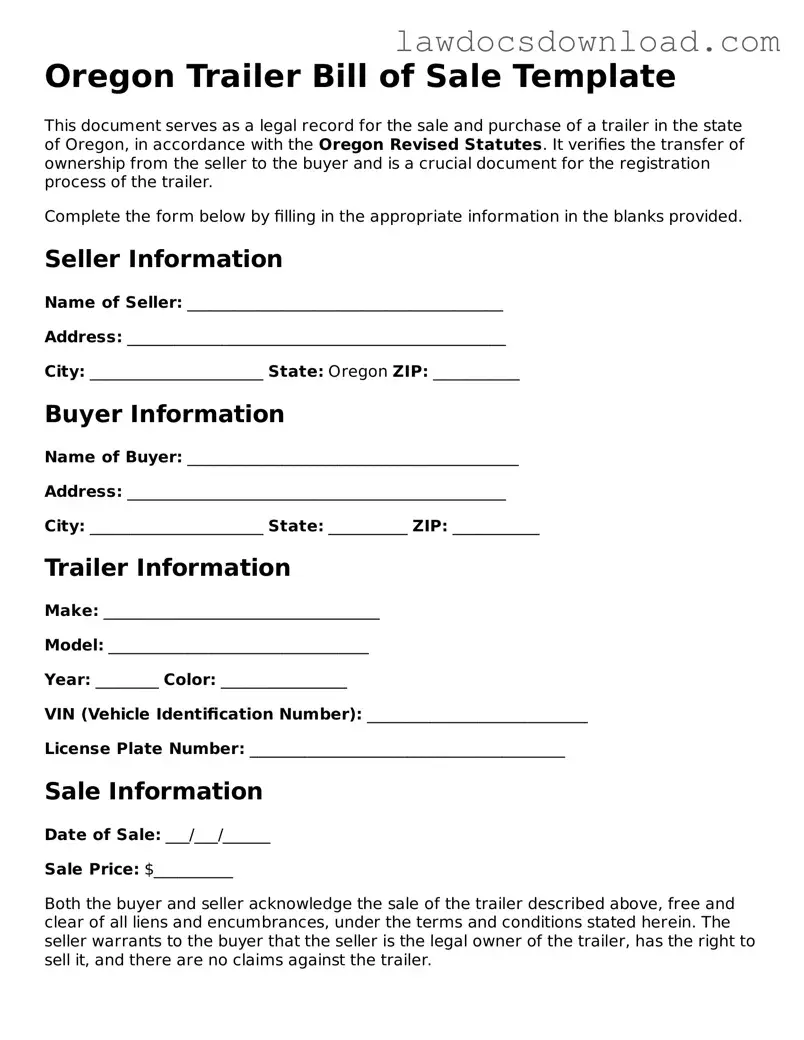Legal Oregon Trailer Bill of Sale Form
The Oregon Trailer Bill of Sale form serves as a crucial document in the process of buying or selling a trailer within the state. This legally binding document records the sale and transfer of ownership from one party to another. It stands as a vital record for both legal protection and registration purposes.
Launch Trailer Bill of Sale Editor Here

Legal Oregon Trailer Bill of Sale Form
Launch Trailer Bill of Sale Editor Here

Launch Trailer Bill of Sale Editor Here
or
Free Trailer Bill of Sale
Get this form done in minutes
Complete your Trailer Bill of Sale online and download the final PDF.